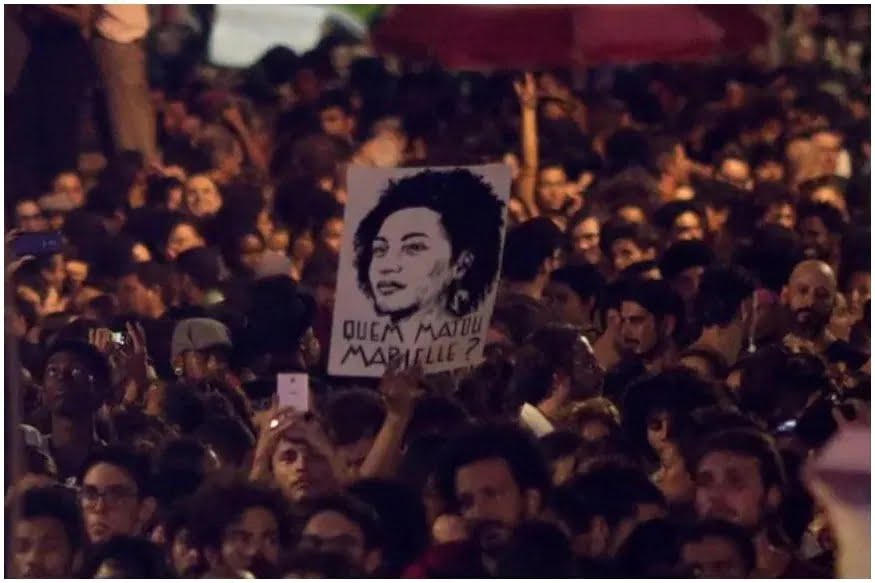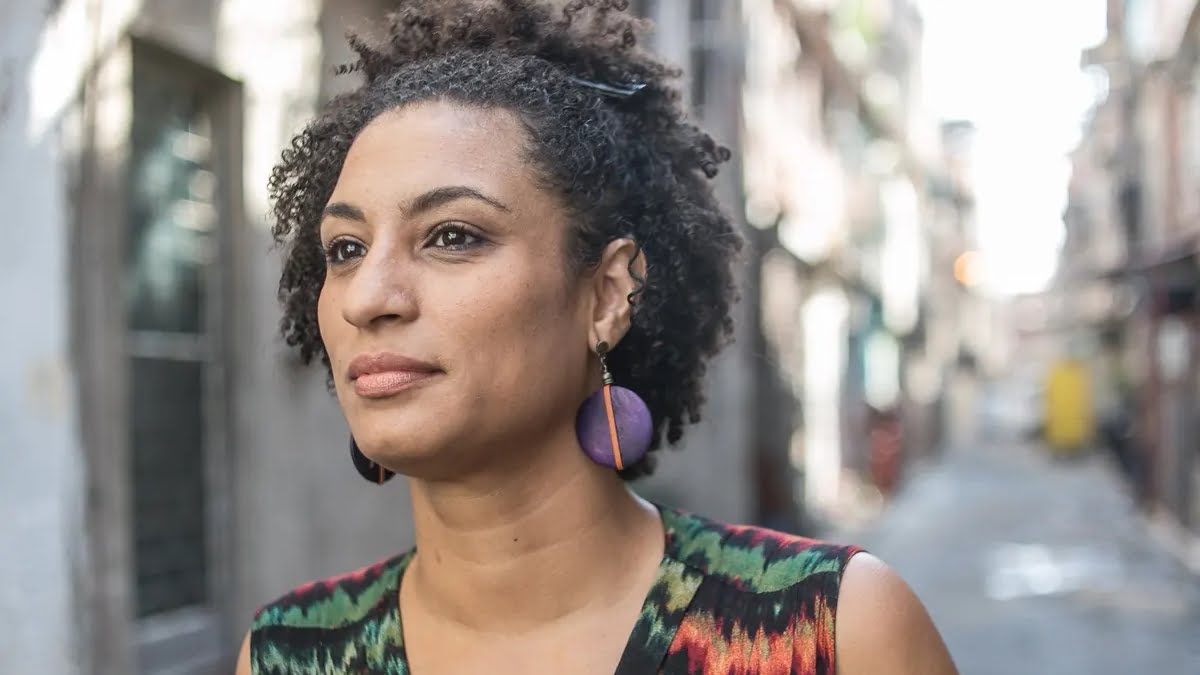In 2016, Brazilian human rights defender, Marielle Franco was the only black woman elected as the city councillor on Rio de Janeiro’s 51-member city council. In a country divided on racial and socio-economic lines, where over 55 percent of the population identify as Black or mixed-race, Marielle’s victory was momentous. Marielle’s politics were personal – and this set her apart. As a queer single mother who grew up in Maré favela, she campaigned for marginalised and underrepresented groups – the identities which she represented.
In March 2018, less than two years after her victory, Marielle and her driver, Anderson Gomes were gunned down in Rio. The day before she was killed, Marielle questioned police involvement in the killing of a young man from a favela on Twitter: “How many others will have to die for this war to end?”
Marielle’s politics were personal – and this set her apart. As a queer single mother who grew up in Maré favela, she campaigned for marginalised and underrepresented groups – the identities which she represented.
Marielle had been an outspoken critic of police raids of favelas and milícias, paramilitary groups made up of former and current police officers. It later emerged that two of the suspects of Marielle’s killing were former members of Rio’s military police. The suspects have since been linked to Brazil’s right-wing President Bolsonaro and his family. However, those who planned Marielle’s killing still remain free.
Leonard Cortana’s documentary “Marielle’s Legacy Will Not Die”, currently being screened at the online edition of the Kashish Mumbai International Queer Film Festival does not delve into the circumstances or investigation of Franco’s killing. Instead, the focus is on memorialisation – the efforts of Brazilian activists to ensure the loss of Marielle is a transformative moment in the country’s history.
Also read: Why We Must Condemn Jair Bolsonaro As Republic Day Chief Guest
Set in the days leading up to the one-year anniversary of Marielle’s killing, the film provides an intimate portrait of the gap she left in the lives of those close to her. The sense of loss and anger is palpable. Interviews and speeches of Marielle’s widow, family and the activists who she worked closely with, are interjected with shots of street art, banners and performances dedicated to Marielle’s memory. It is clear as a samba performer at Rio’s Carnaval states that Marielle’s loss has left an “open wound in the city.”
However, the film also leaves viewers with hope and serves as a call to action. Queer, black and feminist activists channel their sense of loss into resistance and work towards building the society which Marielle wanted. As one activist notes in a planning meeting: “Every space in the city should raise awareness about Marielle.”
Queer, black and feminist activists channel their sense of loss into resistance and work towards building the society which Marielle wanted. As one activist notes in a planning meeting: “Every space in the city should raise awareness about Marielle.”
Particularly striking are the film’s visuals showing performance and art merging with activism. Performers at the Carnaval pay tribute to Black and Indigenous activists who lost their lives, including Marielle, while taking a stance against President Bolsonaro. A float with images of historical figures passes by as performers sing: “These ‘heroes’ trampled on black blood and hid behind their portraits on the wall.” Brazil has amongst the highest extrajudicial executions of human rights defenders in the world, and Black, Indigenous and LGBTQ defenders have increasingly been at risk since Bolsonaro’s rise to power.

There are parallels between the rise of the right-wing politics in India and Brazil and the targeting of voices of dissent, particularly from minority and marginalized groups. For Indian viewers, Marielle’s Legacy Will Not Die will leave questions on how we can take forward the causes of those who we have lost.
Also read: Save The Amazon: Indigenous Women In Brazil Protest Against Bolsonaro
“Marielle’s Legacy Will Not Die” is being screened at the online edition of the Kashish Mumbai International Queer Film Festival that ends on July 30. Marielle’s family has founded an institute to further her life’s work. For more information, please visit: www.support.institutomariellefranco.org.
Suraj Girijashanker is an Assistant Professor at Jindal Global Law School, where he teaches Gender and Society and International Human Rights Law.
Featured Image Source: The Guardian




